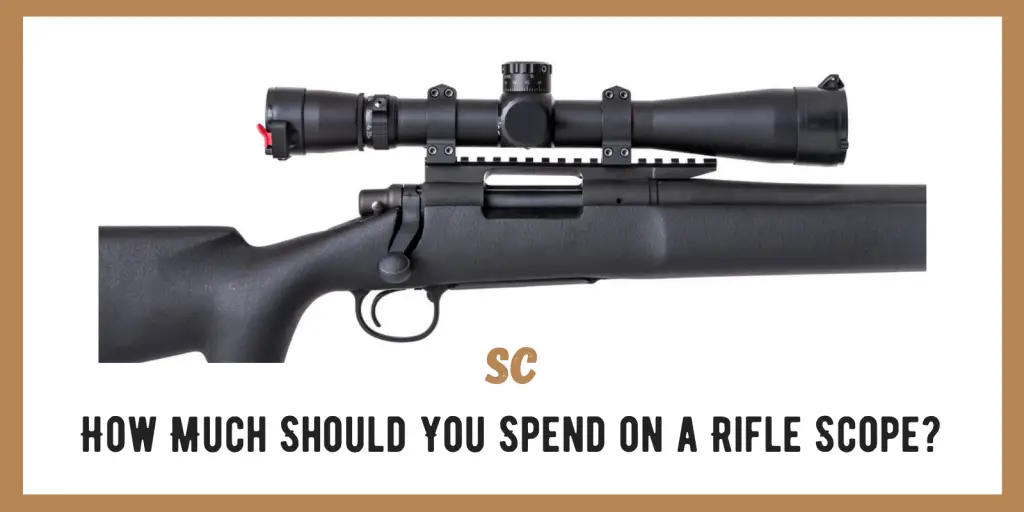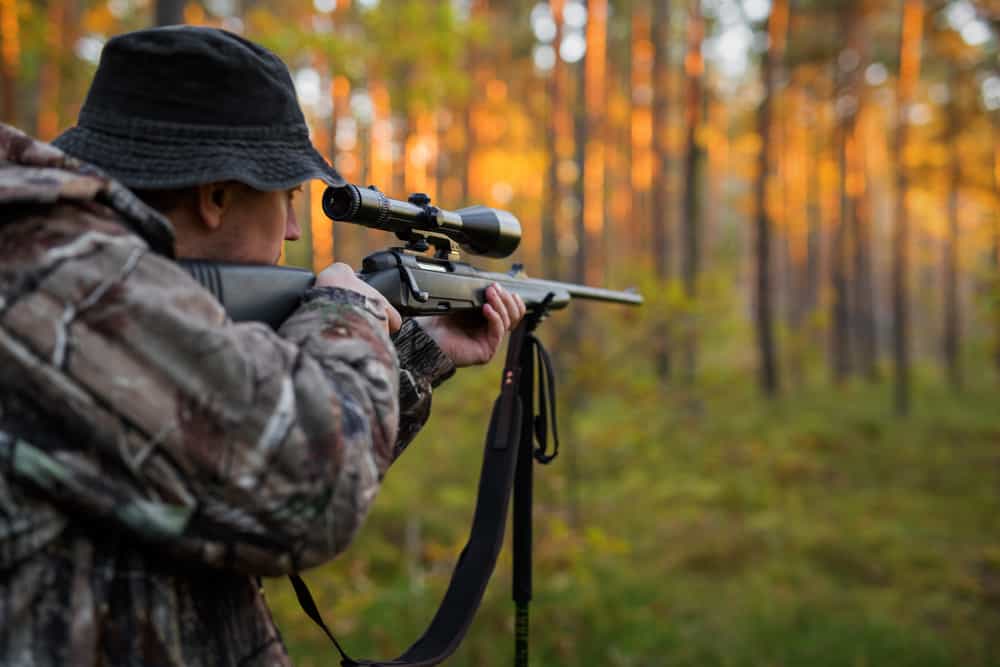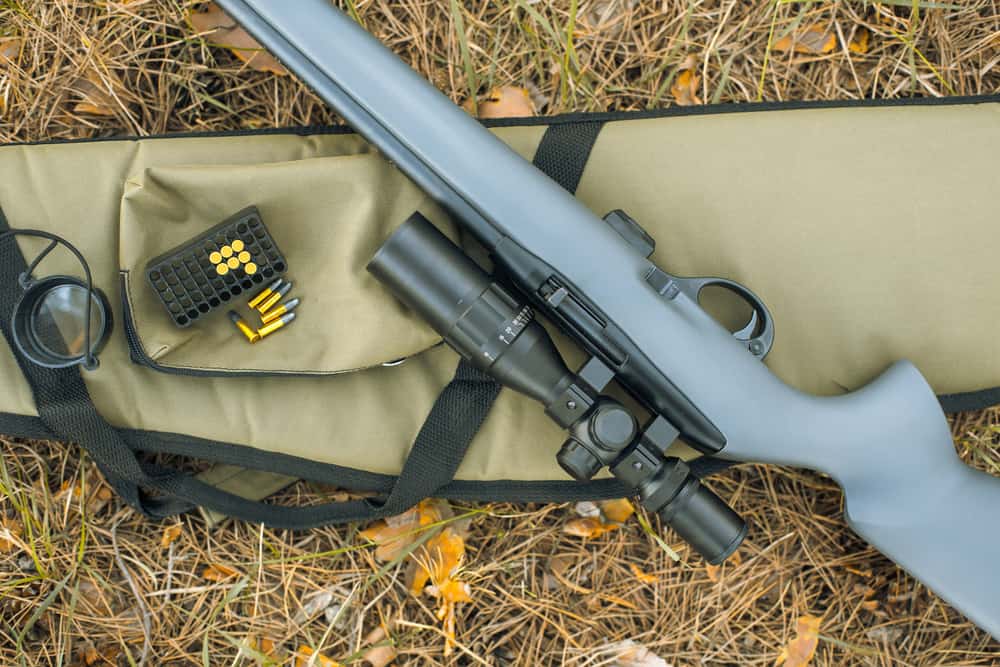Start asking that question around rifle shooters and you will get a variety of answers, suggestions, and advice. Most of them come in the form of a “Rule of Thumb” that someone has read or heard somewhere. In general, these “Rules of Thumb” fall into one of these categories.
- Spend at least twice the cost of your rifle on the glass.
- Never spend less than 1,000 dollars on a rifle scope.
- Spend everything you have leftover in your budget for your rifle scope.
- Price doesn’t matter if it is a (insert a brand name here) scope.
Everyone, it seems, has an opinion and advice to give. I rarely hear anyone talk about finding the scope that best fits your shooting needs and expectations. Very few people go to the store to buy anything with rules such as those listed above in mind. Buying a rifle scope should not be any different. Find the highest quality scope with the features you want at the price that fits your budget.
SKIP AHEAD
Shooting Styles and Features – The Two Are Entangled
Before you start shopping for a rifle scope, spend some time thinking about how you expect to use that scope. How you use the scope is a big part of deciding what features you need. There is no reason to spend extra money on features you may never use in the field.
What Type of Shooter are You?
In general, shooters fall into three main categories. Each of these shooting categories demands different features in rifle scopes and should be the foundation of your rifle scope decisions. I tend to categorize shooting styles like this.
- Casual shooters
- Hunters
- Competitive target shooters
- Combat and tactical shooters
There may be some overlap in these categories. Casual shooters, plinkers, and range shooters may also occasionally hunt, as do some competitive shooters. I have found that it is rare among rifle owners to find someone who owns a rifle used only for one purpose.
Casual Shooters, Plinkers, and Range Shooters
This category is, far and away, the largest category of rifle owners I have found. This group of rifle owners represents the average gun owner in the US. I would also guess that the most common rifle in this group is the venerable .22 Long Rifle. I must admit that my Ruger 10/22 gets more use than any other rifle in my gun safe.
As I write this article, a new Ruger 10/22 costs about $300. The vast majority of these rifles become casual shooters used for target practice, plinking, training, and the occasional small game animal. Does it make sense to put a $600 scope on this rifle? Not in my book.
I admit that my Ruger 10/22 is probably overglassed. My Ruger 10/22 sports a Vortex Optics rimfire scope that probably cost about what I paid for the rifle. However, my age and the state of my vision make the variable magnification worth the price to me. Finding the features you want that fit your needs and expectations and are within your budget is the key to how much you should spend on a scope.
Hunters – Results Matter
There is a wide range of hinting styles and needs. Each of these different hunting styles requires a different set of considerations about rifle scopes. Consider these situations.
The One Hunt Season
I suspect that most hunting rifles sold get pulled out of the gun safe or closet once or twice a year for a two or three-day hunt. I would be surprised if many of these rifles go to the range for zeroing before the hunt. A simple quality scope that will hold zero over time is a key issue for this type of shooter.
These hunters don’t need many of the features of expensive scopes that they will probably never use or don’t understand how to use. The factor most important is a scope that shoots true and brings a deer or elk home from the hunt.
Specialty Hunters
Some hunters are more focused than the one hunt seasonal hunter. A hunter often spends thousands of dollars on permits, fees, guides, and equipment preparing for a hunt. In these cases, spending more on a quality scope makes sense. Why go to all the trouble and expense of a four or six-day guided elk hunt and take the cheapest rifle scope you can find.
Specialty hunters often encounter more extreme conditions, shoot at longer ranges, and fire higher caliber rifles. Every one of these factors puts stress on rifle scope that may cause less expensive scopes to fail. Under these circumstances, getting the features in a rifle scope that meets your needs is critical to success. Spending on a rifle scope what you spent on the rifle is not an unreasonable expectation.
Guides and Professionals
Those who carry a rifle into the backcountry professionally are a different breed with different requirements. Professional hunting guides in the field almost every day a season is open must have the best equipment available. A carpenter who uses an electric saw for hours every day wouldn’t buy the cheapest circular saw at the discount store. Professional guides can’t afford to mount a discount rifle scope on a rifle that is the primary tool of their trade.
By and large, this type of shooter understands how a scope works and the need for the more expensive features on high-end rifle scopes. I would not be surprised to learn that a professional guide or shooter spent two or three times the cost of their rifle on the scope that rides on top.
Competitive Target Shooters
Competitive target shooters have entirely different viewpoints about rifle scopes. No matter the style of competitive shooting, the requirements are almost entirely the same. These shooters want the clearest possible images, the ability to make almost microscopic adjustments to their rifle scope, and the knowledge that the scope will consistently perform.
Long-range precision shooters have the same sorts of requirements. I admit that I enjoy testing the capabilities of my skills and my rifles at extreme ranges. My long-range precision rifle is a custom-built AR-15 platform. To maximize the capabilities of the rifle and the shooter (me), I spent far more on the scope than I did on building the rifle.
I think that this holds true for most competitive target shooters. Again, spending two or three times the cost of your rifle is not unusual for competitive target shooters. You can’t hit what you can’t see. For most of us, at 1,000 yards, even a twelve-inch steel disk is a small target to find.
Combat and Tactical Shooters
This is the smallest group of shooters in my categories. This group includes military and law enforcement individuals whose jobs include tactical engagement with hostile targets. Snipers are a small subset of this category.
When your life or the lives of your colleagues may depend on you, there should be no question about the quality and dependability of your equipment, including a rifle scope. In this category, budget is usually not an issue. Features, quality, and dependability are the watchwords.
The Matter of Budget
Only you can decide on your budget for a rifle scope. No one else has the inside knowledge of your financial affairs to make that kind of decision. You may be in a financial position that allows you to ignore budget considerations. In this case, spending whatever you want on a rifle scope is no problem.
However, for most of us, budget considerations are a major factor in our scope spending habits. This fact makes understanding what we need and want in a scope important. Finding those features at a price we can afford is a compelling need for most shooters.
Unfortunately, the budget situation often requires us to compromise our wants with the realities of our finances. Finding the best combination of features that fit into our budget is the real challenge.
So, What Should You Spend on a Rifle Scope?
The bottom line answer is to spend as much as you can afford to get the features you want in a rifle scope. Your financial situation and the features you want or need in a rifle scope determine what you should spend.
There is no definitive formula or easy measure of what you should spend on a rifle scope. It is foolish to think that a simple rule of thumb is the answer to every situation. Using such broad criteria is an invitation to making the wrong scope decisions.
For example, I mentioned earlier that my Ruger 10/22 is overscoped. The Vortex Optics variable power scope I mounted on this rifle would be considered overkill by most people. However, this rifle is my go-to kit for small game such as rabbits. In West Texas, the shots I take on these elusive animals may range from 75 to 125 yards.
My eyes are not what they used to be, and I need all the help I can get to see a small target at these ranges and expect to make an accurate shot. I am willing to pay more than most people should spend to have the capabilities I need on this Ruger 10/22 rifle.
Don’t Under Rate Budget Scopes
At the other end of the spectrum, I always advise rifle shooters against underrating budget scopes. Many less expensive scopes will perform admirably under the right conditions and situations.
Many years ago, I purchased a Savage bolt action rifle in .270 caliber. The rifle was a bargain and came equipped with what I considered a very low-end scope that I typically would not recommend to anyone. I bought the rifle and scope for two reasons. They were cheap, and I needed a backup rifle that could also serve as a loaner.
An afternoon at the range proved that the scope was zeroed and offered above-average clarity. I left the scope in place. All these years later, that rifle and scope are still in my safe. The rifle and scope have been on numerous hunts and have never failed to bring home a deer. The rifle goes to the range for zeroing and adjustments regularly. The low-cost scope is still clear, bright, and accurate.
In the End – Forget the Formulas
When it comes down to what you should spend on a rifle scope, forget the formulas and rules of thumb. The most important factors in determining how much you spend on a rifle scope are the things you should know already.
Your expectations and needs for the rifle scope must balance against your financial situation to determine your budget for a rifle scope. It may come to pass that what you want and need in a rifle scope means spending more than the cost of your rifle. If your budget doesn’t meet those expectations, you must consider making the necessary arrangements for your financial situation.




